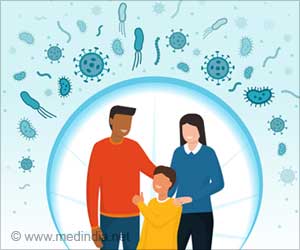(through the rising of antibodies) when there is a mismatch of blood group type during
.
Moreover, as the donor organs are also matched to their potential recipients’ blood group, it forms one among other criteria for the waitlist based on blood type.
There are nearly 1,600 people waiting for a life-saving organ transplant in just Ontario as per the Trillium Gift of Life Network.
Incompatibility of Blood Group
As the blood group ‘O’ has no antigens, there is a risk of antibody attack from any other blood group apart from the type ‘O’. This adds on to an average of twice as long as waiting time for even a lung transplant when compared to those of the type A group.
“This translates into mortality. Patients who are type O and need a lung transplant have a 20% higher risk of dying while waiting for a matched organ to become available. If you convert all organs to universal type O, you can eliminate that barrier,” says Dr. Aizhou Wang, a scientific associate at Dr. Cypel’s Lab and first author of the study.
The author also affirms a similar disparity for other organs. Hence, a patient who is type O or B in need of a kidney transplant will be on the waitlist for an average of 4 to 5 years, compared to 2 to3 years for types A or AB.
Curating Universal Organs
The study team thereby experimented using the Ex Vivo Lung Perfusion (EVLP) System pioneered in Toronto to curate a treatment.
The EVLP system allows pumping of the nourishing fluids through organs, which then enables them to be warmed to body temperature for further repair and improvement before transplantation.
Transplant Experiment
The team put the human donor lungs (that were not suitable for transplantation from type A donors) in the EVLP circuit followed by treating one lung as with a group of enzymes to clear the surface antigens and the other lung (same donor) being untreated.
Each of the lungs was then tested by adding type O blood to the circuit as the ‘O’ group has high concentrations of anti-A antibodies to initiate ABO incompatibility during the transplant.
Universal Transplant Organs
It was found that the treated lungs had better tolerability (evidenced by signs of rejection) than the untreated ones.
The present study affirmed that blood type can be safely converted into the type for matching donor’s organs projected for transplantation using the EVLP System.
These findings may help create universal type O organs (similar to universal blood type “O”) that may advance the organ allocation and reduce mortality in transplantation.
“With the current matching system, wait times can be considerably longer for patients who need a transplant depending on their blood type. Having universal organs means we could eliminate the blood-matching barrier and prioritize patients by medical urgency, saving more lives and wasting less organs,”says Dr. Marcelo Cypel, surgical director of the Ajmera Transplant Centre, the senior author of the study, a thoracic surgeon at UHN’s Sprott department of surgery, and also a professor in the Department of Surgery at U of T and the Canada Research Chair in Lung Transplantation.
Gut Enzymes The Hidden Formula
The key to the creation of universal blood-type organs had originated from the team’s previously found enzymes in 2018.
“Enzymes are Mother Nature’s catalysts and they carry out particular reactions. This group of enzymes that we found in the human gut can cut sugars from the A and B antigens on red blood cells, converting them into universal type O cells. In this experiment, this opened a gateway to create universal blood-type organs,” says UBC biochemist Dr. Stephen Withers.
The translated clinical research findings set new milestones for organ transplantation in the future.
The team is further set to work on the clinical trial proposal within the next 12 to 18 months.
Source: Medindia



